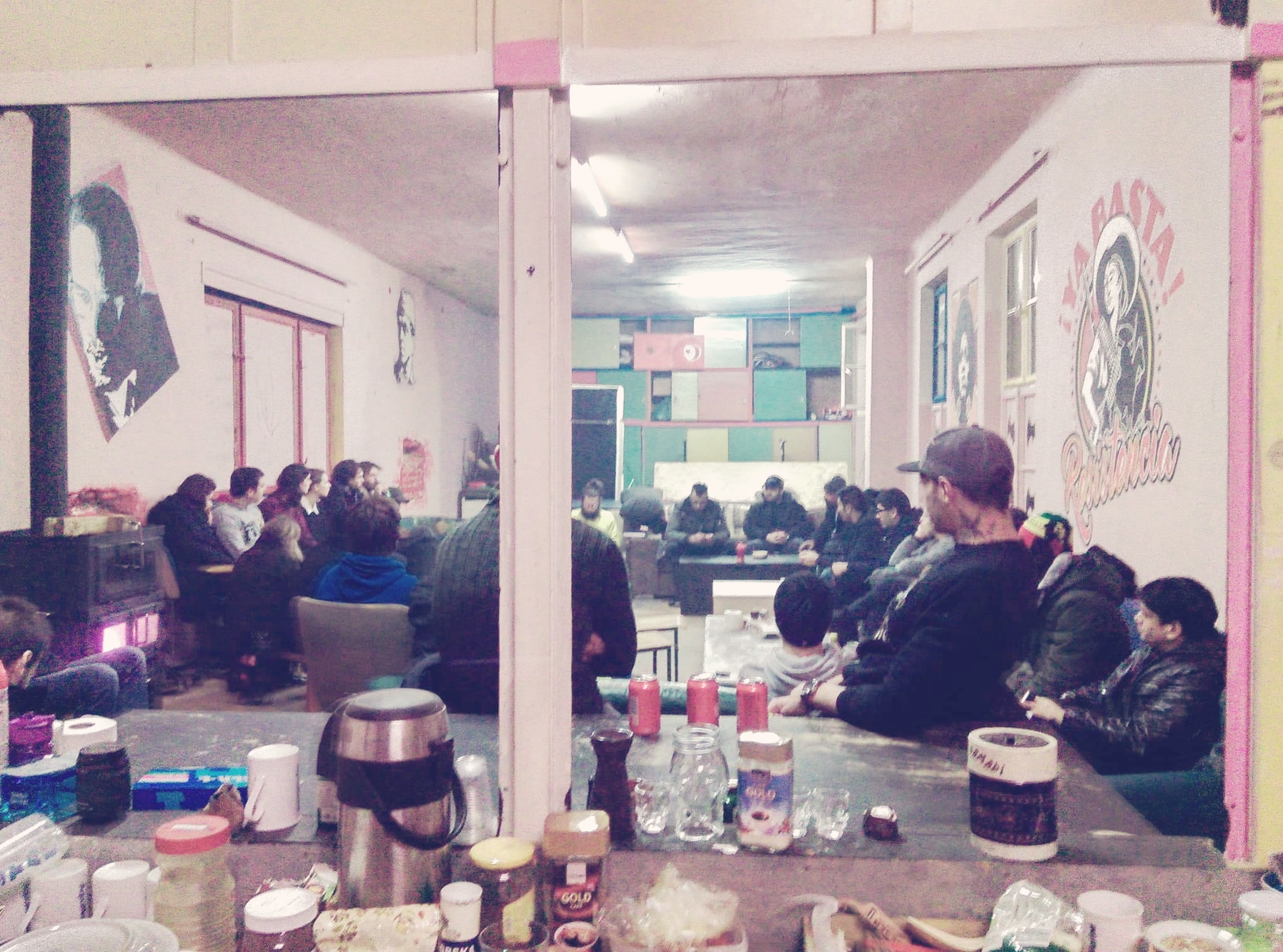As an asylum seeker in Slovenia, you will stay in open camps. There are two camps in Ljubljana, the capital city of Slovenia; open camps are titled as ASYLUM HOMES.
-
Asylum Home in Vic located 6 km from the historical city center, where usually most of the asylum seekers reside. It is a camp for 200+ people, divided into sections for families, minors, single women, and single men. The location: Cesta v Gorice 15, 1000 Ljubljana, Slovenia
-
Asylum Home Kotnikova located in the city center of Ljubljana and accommodates only single men. The capacity is 100+. The location: Kotnikova ulica 8, 1000 Ljubljana, Slovenia
-
Camp Logatec (30 minutes or 32km from Ljubljana) locates in a small city of Logatec. It is for families and single men during the increasing periods of arrivals.
Food and other facilities are provided in all camps by the Government Office for the Support and Integration of Migrants.
Refugees with international protection status have 15 days upon their positive decision on status to find a place to live. Please contact InfoKolpa to ask for help with searching for housing.
Address in Ljubljana: Einspielerjeva ulica 6, 1000 Ljubljana, 1st floor
Webpage: http://odnos.si/
Telephone: +386 41 552 628 / English and Slovenian
E-mail: drustvoodnos(at)gmail.com
If you do not find your accommodation in 15 days, there is a possibility to reside in the integration house in Ljubljana or Maribor (the second biggest city in Slovenia), there is one more integration house in Ljubljana, but the capacities are small. You can live temporarily in the integration house and still search for your room or apartment to rent.
Prices
A loaf of bread: 1.5 €
1 liter of bottled water: 0.5 € (potable water is everywhere along with the country)
Package of cigarettes: 3.5 - 4.5 €
Taxi drive inside Ljubljana: 5-10 €
Bus drive inside Ljubljana: 1,3 € / 90 minutes
Phone SIM card: 2€ for SIM card + 10€/month for 30GB of data
Haircut: 10 - 15 €
Beer: 1 - 2,5 €
Transport
Public transportation in Slovenia mostly consists of buses and trains. The average price range for bus or train tickets is from 5 to 10 eur for a 50-100 km destination. All cities usually have bus or train rides to Ljubljana going every hour or two or at least a few times a day. For bus rides in Slovenia, you can check these websites: https://www.ap-ljubljana.si/en/. For train rides, you can check here: https://www.slo-zeleznice.si/en/.
For people who only arrived in Slovenia and do not have documents, using public transportation could not be very safe, as there is a regular police presence in cities near the border (Črnomelj, Ilirska Bistrica, Brežice, Ormož, and other cities). When going on a train or bus in the border area, you should be very careful as you can be stopped by police and taken to the police station. Slovenian police are currently not respecting the law by not allowing people to ask for asylum and deporting people back to Croatia. If you have the plan to use public transportation to travel, try to do it away from the border zone and to use the train in smaller groups of two or three people.
History, culture and other information
Slovenia is part of the European Union and Schengen zone. It has been an independent state since 1991. Before that, it was part of the state Yugoslavia, along with Croatia, Bosnia and Herzegovina, Macedonia (Northern Macedonia), Serbia, and Montenegro. The official language in Slovenia is Slovene, which is a Slavic language, similar to Croatian and Serbian. Where Italian and Hungarian minorities live, formal languages are also Italian and Hungarian.
Constitution in Slovenia guarantees religious freedom. Almost 60 % of the Slovene population are Catholics, 2.3 % are Orthodox Christians, and less than 1 % are Protestant Christians. 2.4 % are Muslims. More than 13 % are atheists, and another 20 % are not religious. There is a registered Muslim community in Slovenia (http://www.islamska-skupnost.si), which consists mostly of citizens from Bosnia and Herzegovina, Albania, Macedonia, Serbia, and Montenegro. Mosque started its work in February 2020.
The Arab speaking diaspora is young and small, still growing slowly. The same situation is with smaller communities from different countries of the African continent and Asia; Iran, Pakistan, and Afghanistan.
There are a few places and organizations that arrange migrant cultural events or offer opportunities for socializing, such as AKC Metelkova. Organizations like Slovenska Filantropija, Društvo Humanitas, Peace Institute, Društvo Up, Društvo Odnos, Info Kolpa, and other initiatives do offer different activities for socialization, orientation programs, essential services, and advocacy.
In Maribor, the second-largest city, the migrant community is growing, too. Some organizations do services for integration and socialization, including the affiliations of Slovenska Filantropija and Društvo Odnos.
Radio shows of refugees:
Radio student hosts monthly shows of interviews with refugees
Every third Monday in the month at 8 p. m. on 89.3 MHz, prepared by migrants and asylum seekers in Slovenia.
